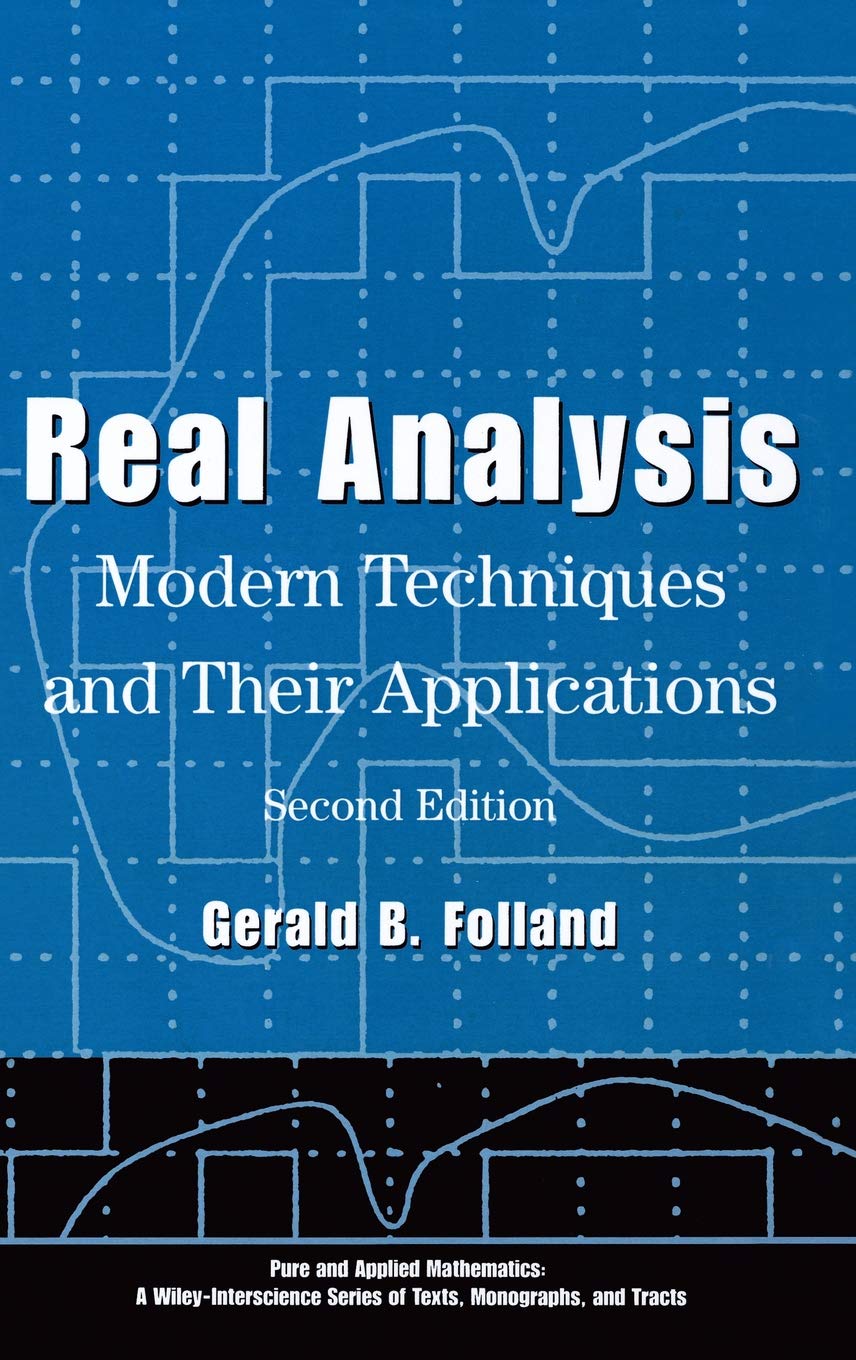Math 5052
Measure Theory and Functional Analysis II, Spring 2022
Basic Information
Instructor: Ari Stern
Email: stern@wustl.edu
Office: Cupples I 211B
Office Hours: TuTh 10-11:30am
COVID-19 Note
Following the university's revised plan for Spring 2022, the first two weeks of the semester will take place online, with lectures and office hours held synchronously over Zoom rather than in person. If conditions allow, the university plans for in-person activities to resume beginning Monday, January 31. If there are any changes to this plan, I will communicate them via Canvas announcements and by updating this syllabus as needed.
Lectures
Lectures will be held MWF 10-10:50am, synchronously on Zoom for at least the first two weeks of the semester, and in Cupples I 113 once in-person activities resume. Zoom lectures will be accessed through Canvas, using the Zoom link in the navigation bar. The first class will be on Wednesday, January 19, and the last will be on Friday, April 29. Class will be canceled for Spring Break (week of March 13-19).
Per university policy, all lectures (both Zoom and in-person) will be recorded and made available for later viewing. Recordings may be accessed through Canvas, using the Kaltura Media Gallery link in the navigation bar. This policy is intended "to both support student learning and to facilitate absences necessitated by good public health practice." Please feel free to use these recordings to review material from lectures you have attended, or in case you must stay home due to illness or not passing self-screening, but do not use them as a substitute for regular synchronous/in-person attendance.
Homework Assignments
Problem sets will be posted to Canvas approximately weekly, and students will submit their solutions electronically by uploading them before the specified due date and time. You are encouraged to discuss the homework with your fellow students, but your final write-up must be your own. Please make sure that your solutions are written clearly and legibly. (Typing up solutions in LaTeX is encouraged and is valuable practice for mathematical writing later in your career.)
Ana Colovic (a.colovic@wustl.edu) is responsible for grading the homework assignments.
Exams
There will be one in-class midterm exam on Wednesday, March 9. The final exam will be held on Monday, May 9, from 10:30am-12:30pm.
Grading
Grades will be based on a weighted average of homework (40%, lowest score dropped), midterm exam (20%), and final exam (40%).

Required and Supplemental Texts
The required textbook for this course is Real Analysis: Modern Techniques and Their Applications, by Gerald B. Folland (second edition, Wiley, 1999). This book has more than a few typographical errors, so it's a good idea to check the list of errata on Folland's homepage.
As a supplemental text, I also recommend Measure, Integration, & Real Analysis, by Sheldon Axler, which is freely available online (although it is also published by Springer in hardcopy). This is a very recent text, but it appears to do a nice job of expanding some of the material that Folland treats more tersely, and giving concrete motivation where Folland is more abstract.
I have also asked the library to place the following supplemental texts on reserve:
- H. L. Royden, Real Analysis (3rd edition).
- E. M. Stein and R. Shakarchi, Real Analysis: Measure Theory, Integration, and Hilbert Spaces.
- E. M. Stein and R. Shakarchi, Functional Analysis: Introduction to Further Topics in Analysis.
- T. Tao, An Introduction to Measure Theory (based on his freely-available course notes).
- R. L. Wheeden and A. Zygmund, Measure and Integral: An Introduction to Real Analysis.
Do not feel obligated to purchase any of these non-required books (although each one is excellent in its own way). I am making them available simply because it can be helpful to see alternative treatments of the same material.
Course Outline
I plan to cover the topics discussed in Folland chapters 6-10 and parts of 7 and 11:
- Chapter 6: Lp Spaces (continued)
- Chapter 8: Elements of Fourier Analysis
- Chapter 9: Elements of Distribution Theory
- Chapter 10: Topics in Probability Theory
- Sections 7.1 and 11.1: Radon Measures and Haar Measure (time permitting)
Academic Integrity
All students are expected to adhere to high standards of academic integrity, as specified in the undergraduate student academic integrity policy and graduate school academic and professional integrity policy. Any violations of this policy will be referred to the relevant Academic Integrity Officer. Violations of this policy include, but are not limited to:
- homework collaboration exceeding that permitted in the Homework Assignments section above (e.g., preparing your final write-up side-by-side with another student rather than independently, copying another student's solutions);
- submitting the work of others as your own (e.g., copying solutions found online);
- exam misconduct (e.g., copying another student's exam or knowingly allowing your exam to be copied, giving or receiving unauthorized assistance, use of unauthorized books/notes or other materials, unauthorized use of electronic devices, etc.).
If you have any questions, or are unsure about what is permitted/prohibited by this policy, please ask me.
In many cases, academic integrity violations are the result of getting behind in coursework and making bad decisions under pressure. Keep up with your assignments, ask questions when you are unsure what is expected of you, and do not give in to the temptation to cut corners.